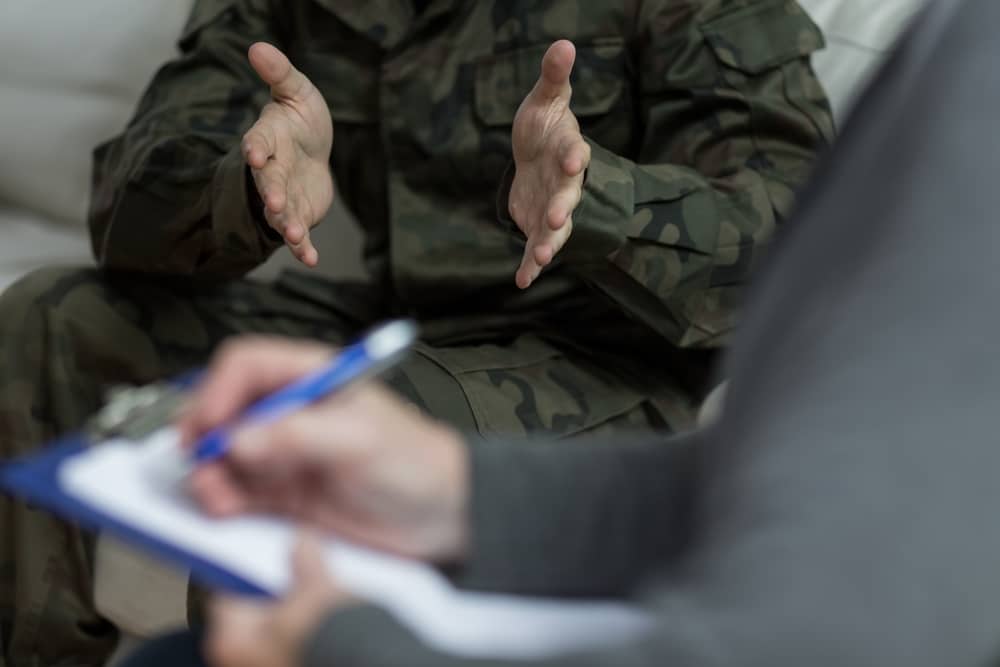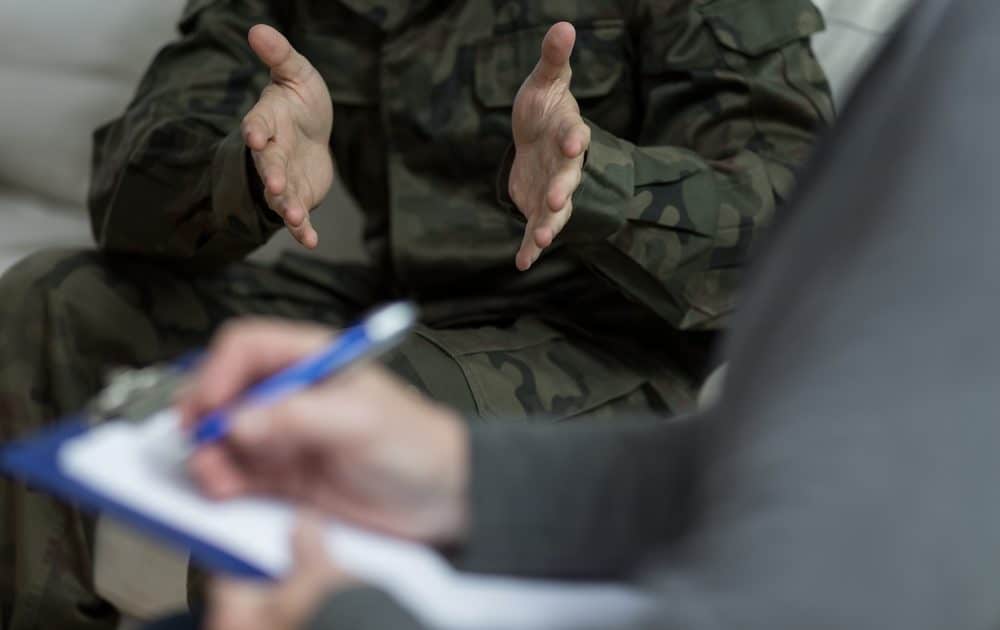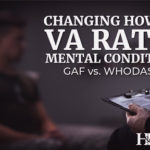What does the VA use to rate mental health conditions?
The VA uses The Diagnostic and Statistical Manual of Mental Disorders, Fifth Edition (DSM-5) when evaluating mental health conditions. The most recent edition of the DSM resulted in a significant change in evaluating how a mental health condition affects someone’s ability to function. In previous editions of the DSM, the Global Assessment of Functioning (GAF) score was used to represent the level of impairment present due to a mental health condition. The 5th edition of the DSM no longer uses the GAF score as a means of representing the severity of a mental health condition. Instead, the DSM-5 has replaced the GAF score with an assessment tool called WHODAS 2.0 (World Health Organization Disability Assessment Schedule).
What is the WHODAS 2.0?
WHODAS 2.0 evaluates a person’s ability to perform activities in six areas of functioning over the prior 30 days. These 6 areas include:
- Cognition
- Mobility
- Self-Care
- Getting along
- Life activities
- Participation
The WHODAS 2.0 uses a questionnaire to provide a score in each of the 6 areas of functioning and then uses these to come up with an overall global disability score. There are 2 versions of the WHODAS 2.0; a 36 question format and a 12 question format. Both questionnaires can be completed by the patient, clinicians, friends, and/or relatives.

The 36 question format provides the most detail, and allows for the computation of the overall functioning score and also the scores for each of the 6 categories of functioning. The 12 question format is useful for providing brief assessments of overall functioning but does not provide separate scores for the specific areas of functioning.
Why the Switch?
A big reason for making the switch from GAF scores to the WHODAS 2.0 assessment was the criticism that using GAF to evaluate the severity of a mental health disability was too subjective. The American Psychiatric Association (APA) stated their concern with the use of GAF had to do with evidence that GAF requires specific training in order to properly use it, and the reliability of the GAF depended on this specific training. Then there was the criticism that the GAF focused too heavily on symptom severity rather than actual levels of impairment. Another common reason for the switch was the GAF could be easily manipulated. For example, lower or higher scores could be assigned based on the rater’s ultimate goal rather than the true level of impairment.
How does this all affect your VA disability claim?
As mentioned above, the VA uses the DSM-V to diagnose, evaluate, and rate veterans’ mental health disabilities. The VA will look at how a mental health condition affects a veteran’s ability to function socially and occupationally. For example, does the veteran have established relationships with friends and family? Is the veteran able to hold a steady job?

Because the WHODAS 2.0 is the assessment tool the DSM-V now uses to assess someone’s ability to function, the impact of changing to the WHODAS 2.0 will mainly be felt by claims for an increased rating. With the elimination of the use of GAF scores, it is important to make sure your treating doctor accurately records the severity of any mental health symptoms along with the impact those symptoms have on your ability to function both socially and occupationally. The WHODAS 2.0 does not provide an assessment for whether or not a mental condition is related to military service, so it does not play a role in claims for service connection.




